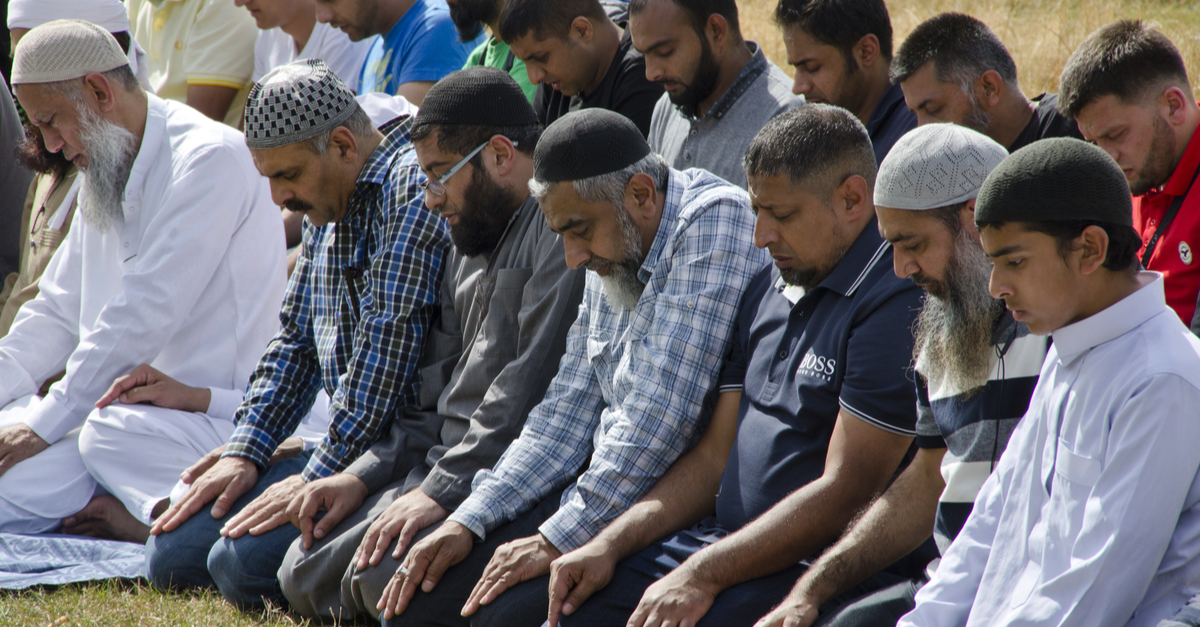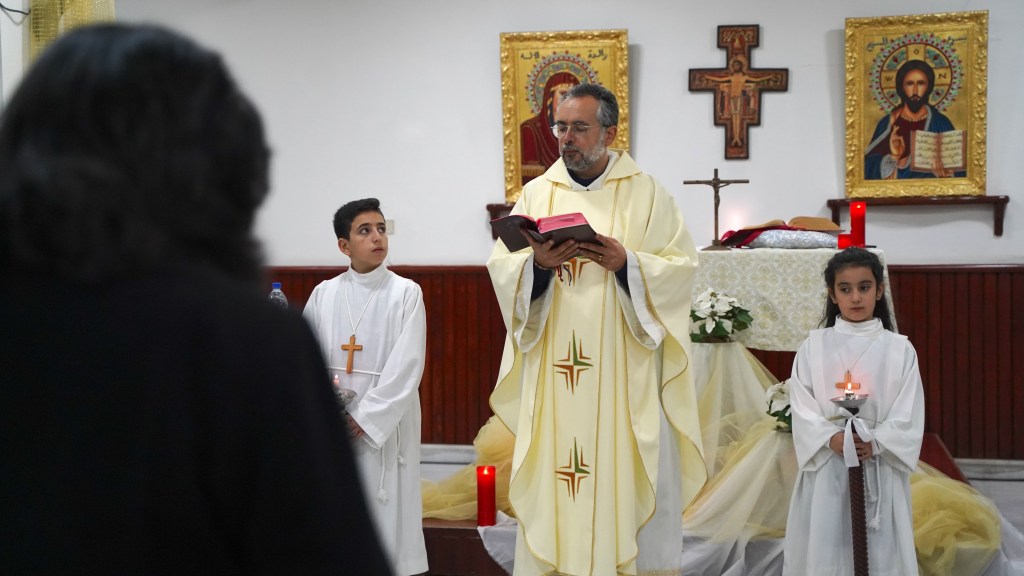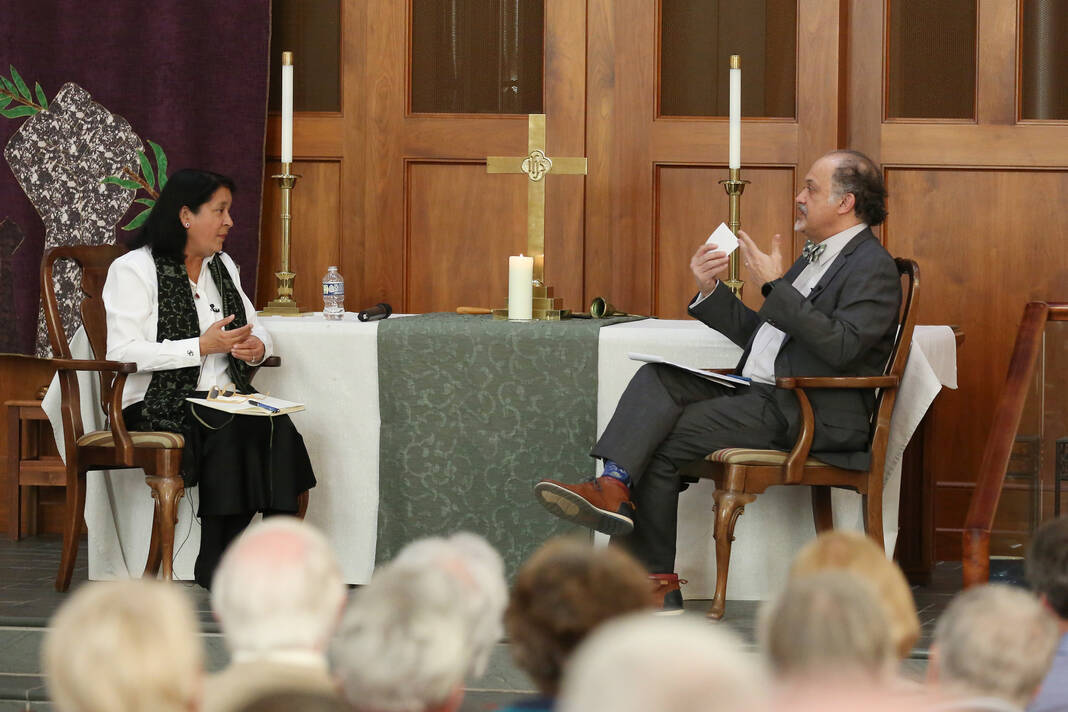Faith That Sticks: Why Islam Leads the Global Retention Race
Religion
2025-03-27 17:38:53Content

In a groundbreaking study, the Pew Research Center has uncovered a fascinating insight into religious identity: Islam demonstrates the highest retention rates among world religions. The comprehensive survey, which examined Muslim populations across 13 countries, reveals that remarkably few Muslims transition away from their faith as they move into adulthood.
This compelling research highlights the remarkable stability of Islamic religious identity, showing that individuals born into Muslim families overwhelmingly maintain their religious affiliation throughout their lives. The study provides a unique glimpse into the cultural and social dynamics that contribute to such strong religious continuity.
By analyzing diverse Muslim communities around the globe, the Pew Research Center has shed light on a significant trend that challenges many preconceived notions about religious conversion and identity. The findings underscore the deep-rooted nature of Islamic faith and its profound impact on personal and community life.
Unraveling the Spiritual Resilience: Islam's Remarkable Religious Retention Phenomenon
In an era of increasing religious complexity and global cultural shifts, a groundbreaking study by the Pew Research Center has illuminated a fascinating aspect of religious identity that challenges conventional narratives about faith and belonging in the modern world.Exploring the Profound Dynamics of Religious Commitment in a Changing Global Landscape
The Unprecedented Retention Landscape
Religious scholars and sociologists have long been intrigued by the mechanisms that sustain religious identity across generations. The Pew Research Center's comprehensive analysis reveals a remarkable phenomenon within Islamic communities worldwide: an extraordinary capacity for maintaining religious affiliation that surpasses other major world religions. This retention rate is not merely a statistical curiosity but a profound reflection of deep-rooted cultural, social, and spiritual dynamics that transcend geographical boundaries. The research, which meticulously examined religious practices across 13 countries with significant Muslim populations, uncovered nuanced patterns of religious commitment that challenge simplistic narratives about religious transformation. Unlike many contemporary religious traditions experiencing declining membership, Islamic communities demonstrate an exceptional resilience in preserving their spiritual and cultural identity.Sociological Implications of Religious Continuity
The implications of this research extend far beyond simple demographic statistics. Sociological perspectives suggest that the high retention rates within Islamic communities are intimately connected to complex social structures, familial networks, and deeply ingrained cultural practices that reinforce religious identity. These mechanisms of cultural transmission create a robust ecosystem that supports intergenerational religious commitment. Anthropological research indicates that religious retention is not just about theological adherence but represents a multifaceted process of cultural reproduction. Family structures, educational systems, and community institutions play pivotal roles in maintaining a continuous thread of religious understanding and practice across generations.Psychological Dimensions of Religious Identity
Psychological studies offer additional insights into the remarkable retention phenomenon. The sense of belonging, community connection, and spiritual fulfillment provided by Islamic traditions appear to create powerful psychological anchors that resist external pressures of secularization and cultural fragmentation. Researchers have observed that the holistic nature of Islamic teachings, which integrate spiritual, social, and personal dimensions of life, contributes significantly to individual and collective religious commitment. This comprehensive approach to life provides adherents with a sense of purpose, meaning, and interconnectedness that transcends mere religious observance.Global Contextual Perspectives
The global context of religious retention is increasingly complex. In an age of unprecedented cultural exchange and technological connectivity, maintaining religious identity becomes both a challenge and a deliberate choice. The Pew Research findings suggest that Islamic communities have developed sophisticated strategies for preserving their spiritual heritage while simultaneously engaging with modern global realities. This adaptive capacity demonstrates a remarkable balance between tradition and contemporary dynamics, allowing religious communities to maintain their core identity while remaining responsive to evolving social landscapes. The retention rates are not about resistance to change but represent a nuanced negotiation between preserving fundamental beliefs and embracing progressive interpretations.Future Research and Emerging Trends
The Pew Research Center's study opens numerous avenues for future scholarly exploration. Researchers are increasingly interested in understanding the intricate mechanisms that contribute to such high retention rates and how these insights might inform broader discussions about religious identity, cultural preservation, and social cohesion. Emerging interdisciplinary approaches promise to provide even more sophisticated analyses of religious retention, integrating perspectives from sociology, anthropology, psychology, and religious studies to develop a more comprehensive understanding of this complex phenomenon.RELATED NEWS
Religion

Faith in Focus: Spiritual Insights and Global Religious Trends Unveiled on April 12, 2025
2025-04-12 01:15:24







